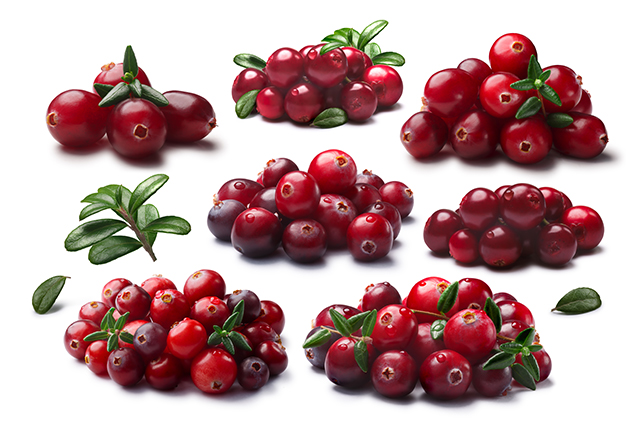Is being overweight ALWAYS unhealthy? Scientists discover the answer depends on to how efficiently the body breaks down and stores fat
11/12/2017 / By Zoey Sky

A recent study proves that your weight doesn’t indicate your health. This is not — and we need to emphasize this — an excuse to overeat or snack on junk food. However, scientists are concluding that what is more important to overall health is how efficiently the body breaks down and stores fat rather than actual weight.
Despite the paradoxical nature of the concept, in the study of obesity, it’s often the overweight people who can break down fat at a high rate. These obese individuals are considered less healthy than other who can store their body fat more effectively. When fat breaks down, a lot of the fatty acids released from the adipose tissue, or body fat, goes elsewhere in the body.
When this happens more than is necessary, the fat can accumulate to harmful levels in other tissues and organs. This excess fat will fuel insulin resistance, which is a hallmark of type-2 diabetes and heart disease. (Related: Fat Loss vs. Weight Loss: What Every Dieter Needs to Know.)
Two studies from the University of Michigan helped isolated key characteristics in fat tissue that can help obese adults store their body fat via a healthier way. Jeffrey Horowitz, principal investigator and professor of movement science at the U-M School of Kinesiology, shared that the studies also prove that aerobic exercise can contribute to healthier fat storage.
A lot of obese individuals often develop insulin resistance, and this can lead to type-2 diabetes and other chronic diseases. But Horowitz et al. determined that at least one-third of the 30 obese adults in their study didn’t develop insulin resistance.
The study looked at adipose tissue samples from the participants, which showed that the healthier group broke down fat at slower rates. The healthier participants also had fewer proteins used in fat breakdown and were more involved in fat-storing, whereas obese individuals had fewer fibrotic cells in the adipose tissue. These cells allows tissue to be more flexible, and they helped lower the activation of certain inflammatory pathways.
Horowitz explained that while the findings seem “counterintuitive,” further study can help the researchers learn more about how people can store fat more effectively. The findings can also be used to study “why some people are better at this than others.” He added that the results can be used to “design therapies and preventions that will improve some of these obesity-related metabolic conditions.”
For the second study, the researchers collected fat tissue after two groups of overweight people underwent a session of aerobic exercise. One group exercised regularly while the other group didn’t. In both groups, even a single session of exercise set off signals that caused the growth of new blood vessels in fat tissue.
The scientists also took note of indications that those who exercised regularly had more blood vessels in their fat tissue compared to the non-exercisers. This is significant since the health of most tissues are often connected to blood flow and nutrients, stated Horowitz.
As we gain weight, our fat cells expand. But if blood flow to fat tissue doesn’t increase at the same time, it might become unhealthy or, eventually, necrotic. Horowitz cautioned that the two studies are relevant because the data can be used to help obese people who are at risk for metabolic disease.
Horowitz advised that with regular exercise, people can foster a “healthier fat-storing environment” even if they occasionally overeat and gain weight. He added that both studies also championed the notion that clinicians can benefit from redefining their ingrained perception of fat.
Horowitz elaborated, “Adipose tissue is scorned because most people see it as causing disease and obesity, but in general adipose tissue doesn’t cause people to gain weight and become obese, it’s just where we store our extra energy when we do overeat… Our studies aren’t suggesting it is healthy to be obese or to overeat — but when we do overeat, it is important to have a safe place to store that extra energy.” He concluded, “When people gain the same amount of body fat, those with adaptations to their fat tissue that can more healthfully accommodate the extra fat may be protected from developing insulin resistance and obesity-related diseases. We have identified some of these adaptations.”
Low-impact workouts to help you stay in shape
If you want to stay in shape to maintain a healthy fat-storing environment in your body, try out these low-impact exercises:
- Walking – Start with a daily leisurely stroll with your pet, then work your way up to steeper hills. You can also use dumbbells or ankle weights to get increase your heart rate.
- Cycling – Try to cycle to work if it’s close enough to where you live.
- Hiking – If walking isn’t enough to get your blood pumping, try hiking! But start with beginner-friendly trails before you consider climbing a mountain.
Visit Detox.news for more articles on natural weight loss tips and nutrition.
Sources include:
Tagged Under: body weight, fat storage, fat tissue, fitness, health, metabolism, obesity, overweight, weight




















